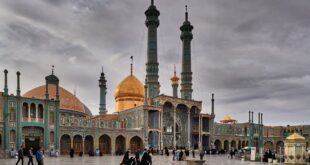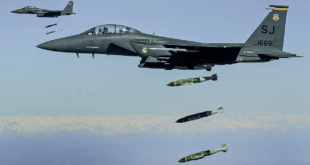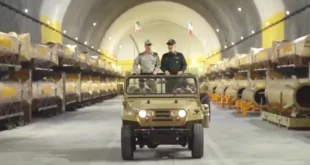PUTRAJAYA, Malaysia (Reuters) — Iran said on Tuesday it wanted to resume nuclear negotiations with the EU and could even talk to Washington if its archfoe “changed behaviour.”
Tehran also said it was willing to negotiate on the number of uranium-enriching centrifuges it uses for research, but stressed it would not stop running the devices entirely as the UN Security Council has called for.
Washington, which along with its allies suspect Iran could use even limited enrichment facilities to master the technology required to make atomic weapons, dismissed the overture.
Tehran says it seeks nuclear energy only for electricity. The five Security Council permanent powers and Germany will meet in Vienna on Thursday in hopes of finalising a package of incentives for Iran to halt enrichment along with penalties if it keeps defying international pressure, officials said.
Iran has vowed that nothing will dissuade it from having full-fledged nuclear technology on its soil, spurring one senior EU diplomat to say on Tuesday that the painstakingly crafted incentives could end up an “academic and theoretical exercise.”
“Europeans should consider irreversible realities in any proposal they plan to offer Iran,” Iranian deputy atomic energy chief Mohammad Saeedi said, alluding to Iran’s first successful production of fuel for atomic power plants, announced in April.
“If they ignore these realities, any proposal will surely face difficulties,” he told a Tehran University gathering.
Speaking in Malaysia, Foreign Minister Manouchehr Mottaki said Tehran could resume dialogue with the United States, after a 26-year official freeze, if Washington changed its behaviour.
He did not say what behaviour. Iran has said previously Washington must stop seeking to topple its Islamic government.
US State Department Spokesman Sean McCormack told reporters in Washington: “We’ve heard that from them before. Nothing new there.”
EU foreign policy chief Javier Solana said the European Union would welcome direct talks between the United States and Iran, but it was for Washington and Tehran to decide.
“As far as direct contacts between the US and Iran, as you know they’ve spent 20 years not talking to each other,” he said.
“A logical analysis would say that that should come to an end because Iran is going to be a very important player in the world. But this is a decision that… they have to take.”
Iran wants talks
 Mottaki said Iran had told Britain, France and Germany it wanted fresh negotiations to resolve the nuclear stalemate. The “EU3” has said Iran must reinstate a suspension of uranium enrichment under which previous negotiations proceeded.
The United States, Britain, France, China, Russia and Germany aim to wrap up a “carrots-and-sticks” package for Iran at Thursday’s meeting of foreign ministers in Vienna.
“We hope the meeting will achieve positive results,” Chinese Foreign Ministry spokesman Liu Jianchao said in Beijing.
The US State Department’s McCormack said: “We feel as though we’re in pretty good shape going into Vienna… It is our hope that they [the foreign ministers] will be ready to sign off on the package in Vienna, if not beforehand.” Diplomats said last week the incentives prepared by the EU3 for Iran would include a light-water nuclear reactor and an assured foreign supply of atomic fuel so Iran would not need to enrich uranium at home, thereby grasping sensitive technology.
Sanctions could entail visa bans and a freeze on assets of senior Iranian officials before resorting to trade measures.
But Russia and China, two of the five veto-holding Security Council powers, have balked at a Western thrust to brand Tehran a “threat to international peace and security”.
They argue this could lead to US-led military action against a state not proven to be seeking atomic bombs in secret.
The senior EU diplomat felt Moscow and Beijing could be convinced to sign off on possible penalties for Iran but said there was much to discuss on Thursday. “This proposal is not the be all and end all. It could all be meaningless. It just depends on Iran,” another EU diplomat said.
Tehran has so far dismissed the initiative — “candies for gold” in the words of Iranian President Mahmoud Ahmadinejad.
Iran’s foreign ministry on Tuesday said Tehran could negotiate on the size of what it calls nuclear research.
Vienna diplomats say Iran has signalled it may renounce “industrial scale” enrichment and reinstate short-notice UN inspections if it can keep “research and development” work.
 Eurasia Press & News
Eurasia Press & News



